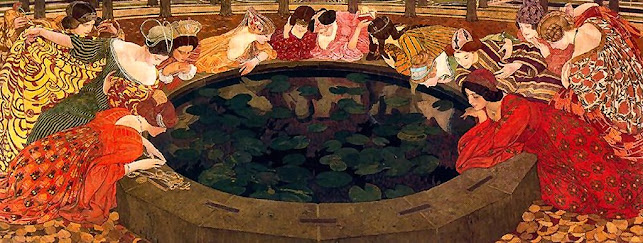Art and Inspiration in RPGs
I have been looking around for resources in order to collect art and images to use as props and worldbuilding materials for tabletop games. There is no substitute for personal knowledge of art but here are a few things I've found.
Ben L. at Mazirian's garden has a post about his creative process and one of thing he does for inspiration is to scour the web for artistic reference points, which he compiles into Pinterest collections on various themes.
I asked Skerples at Coins and Scrolls where he finds the art posted on the blog and he mentioned ArtStation and has other Wikimedia Commons.
ArtStation is very good for all sorts of artists, particularly genre-based artwork for games. You can look at portfolios to get a sense of technique and subject matter. I'm not sure of fair use rules so I won't post anything here but the quality is excellent.
Wikimedia commons has a lot of public domain artwork and also has audio and video files. The links to historical artists are exceptional.
Google Arts & Culture is one I just noticed recently.
This is a very good resource because has good filters that allow you to look for art by type (painting, artifact, sculpture, etc.), medium, and historical period, even by colour. Particularly useful for things that don't show up as frequently in traditional searches (metalwork, more utilitarian objects, etc.).
Check out this Bohemian bone-plaque saddle :
AI text-to-image software
I started with Stable Diffusion as it appears to be free and easily accessible. I can report that on signing up you can get going almost immediately and it is free. The quality of image generation is okay but the software struggles with human faces and main subjects often merge together.
This image is what I got back from the prompt etching of a knight jousting a dragon in the style of Gustav Doré :
The surrealistic merging of horse and dragon seems to be a consistent feature. I think the human face issues are intentional in order to prevent users from creating realistic depictions of living people. The software was decent at producing certain types of photos probably available in stock imagery.
I hope to revisit this post and add to it as I find more resources. Please add anything you think I've missed.









Comments
Post a Comment